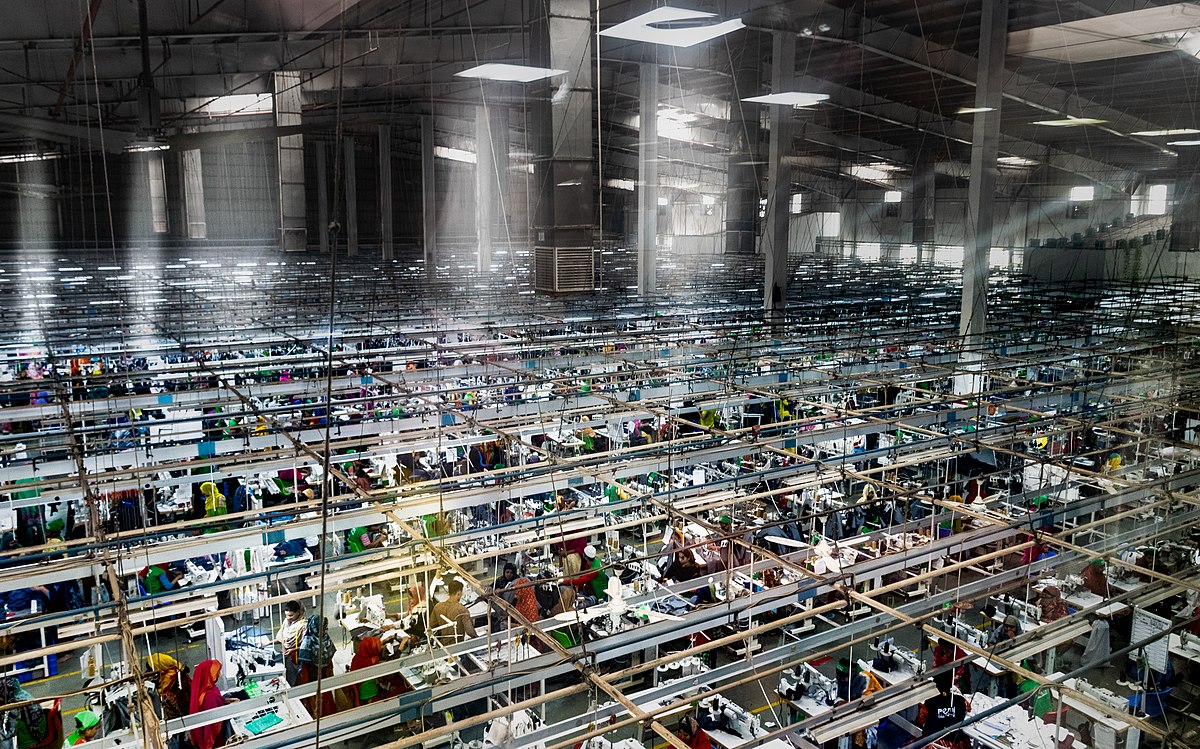
Loss of back-to-back LC facility looms on 500 RMG makers

Around 500 knitwear and home textile exporters without a bond licence are now bracing for a big blow as the National Board of Revenue (NBR) takes a hardline on stopping them from getting a back-to-back letter of credit (LC).
The revenue board in a letter on 31 August requested the Bangladesh Bank not to allow non-bonded apparel factories the facility as it contradicts the central bank's guidelines.
But industry people say if the back-to-back LC benefit goes, at least 450 knitwear and around 50 home textile factories will no longer be able to procure raw materials and accessories from local and foreign sources on credit.
Instead, they will have to make full payments plus VAT in cash for local purchases, which will make their survival very difficult.
In a back-to-back LC, an importer issues an LC to an exporter and the exporter can use it as collateral to get another LC issued for sourcing raw materials and accessories on credit.
"Many apparel factories will face closure if they are barred from opening back-to-back LC as they source 70-80% of raw materials and accessories on credit from the local market with the facility," Mohammad Hatem, senior vice-president of the Bangladesh Knitwear Manufacturers and Exporters Association (BKMEA), told FP.
Not many companies have the financial capacity to buy all their products with cash. They will not survive in an unequal competition with those who have bond licences, he said.
Like other export-oriented factories, the non-bonded ones have been enjoying the back-to-back LC facility over the past three decades although it goes against Bangladesh Bank's existing guidelines, according to the NBR sources.
Seeking anonymity, a senior NBR official said, "We cannot monitor the non-bonded factories since they are not under our supervision.
"We have long been requesting the Bangladesh Bank to amend its guidelines for allowing the back-to-back LC facility for non-bonded factories, but it has not yet done so."
The official said stopping the facility means encouraging imports of raw materials and accessories from abroad.
Only 100% export-oriented factories with bond licences will be eligible for back-to-back LCs. The Bangladesh Garments and Exporters Association (BGMEA) will only be allowed to issue an Utilisation Declaration (UD) meant for importing raw materials to such companies, according to the NBR letter.
The revenue board has also requested the central Bank to take action against the banks who provided such a facility to non-bond holder export-oriented factories over the last three decades.
Khondokar Muhammad Aminur Rahman, a NBR member, said "Providing back-to-back LC facility to non-bonded factories is not included in the Bangladesh Bank policy. It is unlawful to do so."
BGMEA Vice-President Shahidullah Azim said, "The government should not create any barrier to doing business. The country's position in the ease of doing business index will improve if the business process can be simplified.
"If some complexities of the existing law are removed, exports will increase by another $4-6 billion a year."
In the meantime, the central bank is looking at the possible impact on exports if the NBR's decision is implemented.
Talking about the NBR letter, Ahmed Jamal, deputy governor of the Bangladesh Bank, told TBS, "It is not just a routine work. It needs brainstorming. The decision will be finalised after consulting with the NBR."
He said, "If we stop the back-to-back LC facility, it will hurt non-woven exports. Around 80% of non-woven exporters do not have bond licences. We have to think about them."
However, he also said it is the NBR's prerogative to decide who will benefit or not.
According to people concerned, back-to-back LC and bonded warehouse facilities are the key factors behind the success of the readymade garment sector in Bangladesh.
They said about 40% of raw materials required for manufacturing woven garments comes from domestic sources, while the amount goes up to 80% in the case of knitwear items. Besides, more than 90% of necessary accessories are also procured from local sources.
Almost all woven garment exporters have bond licences and they need to import most raw materials.
On the other hand, knitwear and terry towel exporters are reluctant to take bond licences as they procure most raw materials locally and want to avoid hassles in obtaining a bond licence by fulfilling certain conditions.
Dr M Masrur Reaz, former senior economist at the World Bank Group and current chairman of Policy Exchange, told FP, "Not giving the back-to-back LC facility to non-bonded export-oriented factories will increase capital requirements of relatively small and medium-sized entrepreneurs, which would not be possible for many of them. As a result, many companies would not be able to survive.
Editor & Publisher: S. M. Mesbah Uddin
Published by the Editor from House-45,
Road-3, Section-12, Pallabi, Mirpur
Dhaka-1216, Bangladesh
Call: +01713180024 & 0167 538 3357
News & Commercial Office :
Phone: 096 9612 7234 & 096 1175 5298
e-mail: financialpostbd@gmail.com
HAC & Marketing (Advertisement)
Call: 01616 521 297
e-mail: tdfpad@gmail.com